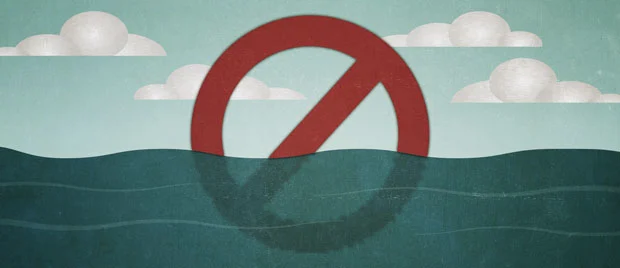There Will Be No Sea in the New Heaven and New Earth

Scripture often speaks of the entire creation awaiting the final act of redemption. To destroy something completely and to replace it with something utterly new is not an act of redemption. To redeem something is to save that which is in imminent danger of being lost. The renovation may be radical. It may involve a violent conflagration of purging, but the purifying act ultimately redeems rather than annihilates. The new heaven and the new earth will be purified. There will be no room for evil in the new order.
A hint of the quality of the new heaven and new earth is found in the somewhat cryptic words, "Also there was no more sea" (Rev. 21:1). For people who have a love for the seashore and all that it represents in terms of beauty and recreation, it may seem strange to contemplate a new earth without any sea. But to the ancient Jew, it was a different matter. In Jewish literature, the sea was often used as a symbol for that which was ominous, sinister, and threatening. Earlier in the Revelation of John, we see the Beast emerging from the sea (Rev. 13). Likewise, in ancient Semitic mythology, there is frequent reference to the primordial sea monster that represents the shadowy chaos. The Babylonian goddess Tiamat is a case in point.
In Jewish thought, the river, the stream, or the spring functioned as the positive symbol of goodness. This was natural in a desert habitat where a stream was life itself. If we look at a relief map of Palestine, we see how crucial to the life of the land is the Jordan River. It cuts like a ribbon through the heart of an arid and parched land, connecting the Sea of Galilee in the north with the Dead Sea in the south.
The Mediterranean coast of western Palestine is marked by rocky shoals and jutting mountains. The ancient Hebrews did not develop a sea trade because the terrain was not suitable for much shipping. The sea represented trouble to them. It was from the Mediterranean that violent storms arose.
We see this contrasting imagery in Psalm 46. The psalmist writes: "God is our refuge and strength, a very present help in trouble. Therefore we will not fear, even though the earth be removed, and though the mountains be carried into the midst of the sea; though its waters roar and be troubled, though the mountains shake with its swelling" (vv. 1–3). Then he adds, "There is a river whose streams shall make glad the city of God" (v. 4).
I live in central Florida. Our area is sometimes described as "the lightning capital of America." The summer months bring severe electrical storms. My grandchildren are frequently frightened by what they call the "booming." The loud thunderclaps are not a part of what they would envision heaven to include.
But the Jews feared other problems from the sea besides turbulent storms. Their traditional archrivals, marauders who beset them countless times, were a seacoast nation. The Philistines came from the direction of the sea.
The Jew looked to a new world where all the evils symbolized by the sea would be absent. The new earth will have water. It will have a river. It will have life-giving streams. But there will be no sea there.
This excerpt is taken from Surprised by Suffering by R.C. Sproul_._

